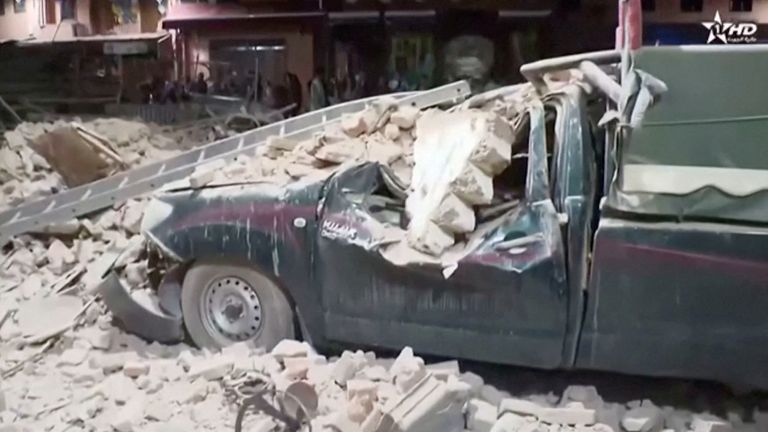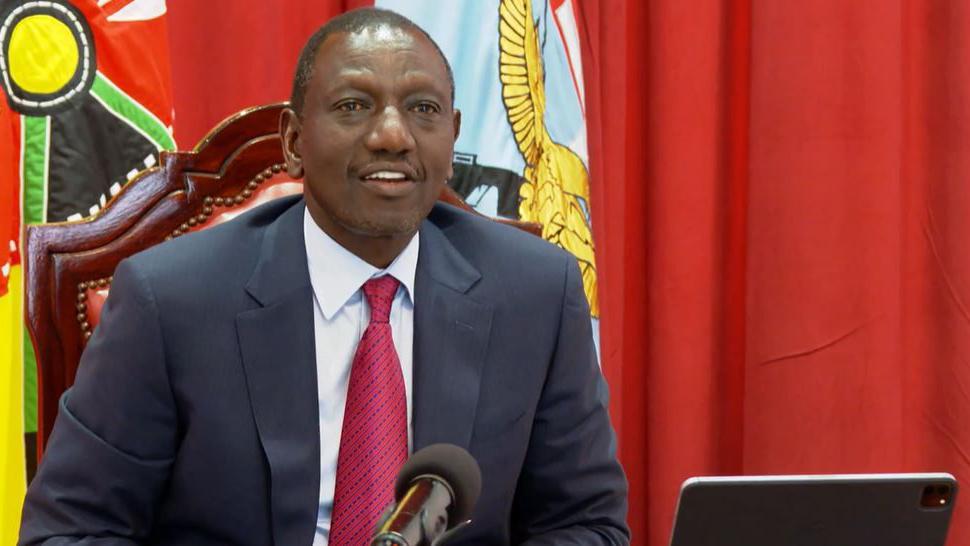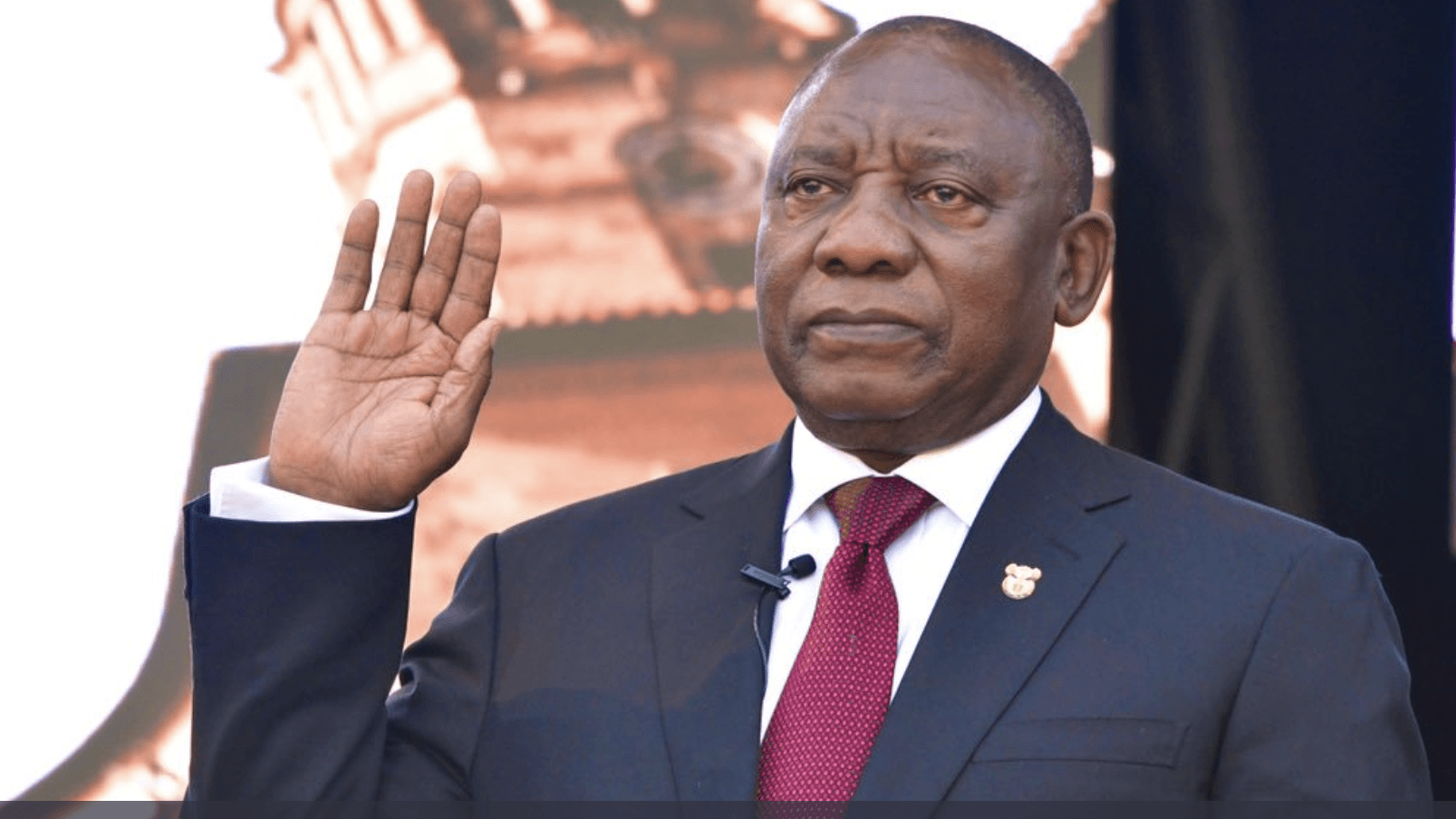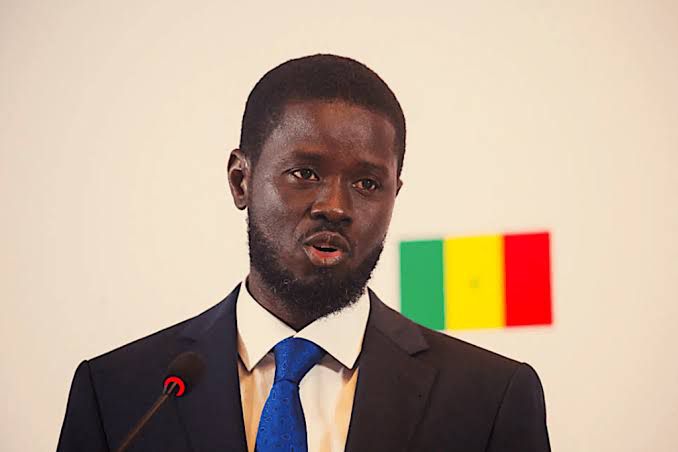A powerful earthquake with a preliminary magnitude of 6.8 has hit Morocco, killing at least 296 people, injuring more than 150, damaging buildings and sending local people fleeing into the streets for safety.
Morocco’s Interior Ministry said early on Saturday that the reported number of dead and injured was a preliminary figure.
“According to a provisional report, the earthquake killed 296 people in the provinces and municipalities of Al Haouz, Marrakesh, Ouarzazate, Azilal, Chichaoua and Taroudant,” the ministry said in a statement, adding that 153 people were injured and hospitalised.
The earthquake hit shortly after 11pm local time (22:00 GMT) on Friday evening, according to the United States Geological Survey (USGS).
The USGS estimates that the epicentre of the quake occurred in the Atlas Mountains, some 75km (44 miles) from Marrakesh, the fourth largest city in the country.
The epicentre of the quake was near the mountain town of Ighil in Al Haouz Province, roughly 70km (43.5 miles) south of Marrakesh.
Local media reported that roads leading to the mountain region around the epicentre were jammed with vehicles and blocked with collapsed rocks, slowing rescue efforts.
Abderrahim Ait Daoud, the head of a town in the area, told the Moroccan news site 2M that several homes nearby had partly or totally collapsed, and electricity and roads were cut off in some places.
He also said that authorities were working to clear roads in Al Haouz province to allow passage for ambulances and aid to populations affected. Large distances between mountain villages mean it will take time to learn the full extent of the damage, he added.
Moroccans posted videos showing buildings reduced to rubble and dust, and parts of the famous red walls that surround the old city in Marrakesh, a UNESCO World Heritage site, damaged. Tourists and others posted videos of people screaming and evacuating restaurants in the city. Shocked residents in Marrakesh and Casablanca fled out of buildings and onto the streets for safety.
One Marrakesh resident, Brahim Himmi, told the Reuters news agency that he spotted ambulances leaving the city’s historic old town. He also said that building facades had been damaged as the earth shook.”
While earthquakes in the region are “uncommon but not unexpected”, one of this magnitude has not been seen in the immediate area in over 120 years.
“Since 1900, there have been no earthquakes M6 [magnitude 6] or larger within 500km of this earthquake, and only nine M5 [magnitude 5] and larger,” the USGS said on its website.
Most of those previous earthquakes occurred further to the east as well, the agency added.
Friday evening’s earthquake was a relatively shallow one, occurring at a depth of 18.5km (11.5 miles). The USGS explained that “oblique-reverse faulting” in the Atlas Mountains was the cause of the quake.
The last major earthquake to strike Morocco occurred in 2004, killing over 600 people. That quake, dubbed the Al Hoceima earthquake, was positioned on an active plate boundary on the country’s northernmost coast, bordering the western Mediterranean Sea. It clocked in at a magnitude of 6.3.
An even larger quake struck neighbouring Algeria in 1980. Known as the El Asnam earthquake, the 7.3-magnitude event was the strongest seismic activity the region had seen in centuries. Also originating in the Atlas Mountain range, it levelled houses, leaving 300,000 people on the street and over 2,600 people dead.
Aljazeera

 News6 years ago
News6 years ago
 Featured6 years ago
Featured6 years ago
 Boss Picks6 years ago
Boss Picks6 years ago
 Headline6 years ago
Headline6 years ago
 Headline6 years ago
Headline6 years ago
 Headline6 years ago
Headline6 years ago
 Headline6 years ago
Headline6 years ago
 Headline6 years ago
Headline6 years ago













